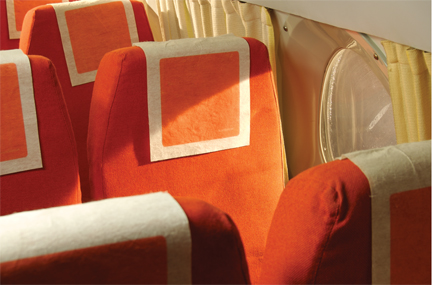| Everything I Need |
| |

|
| |
| 2007 |
Continuous color double video projection installation with sound,
projection screens,
25 minutes, dimensions variable |
| |
In 1978 the Berlin-based lesbian activist group, "L. 74," invited the 81 year-old psychologist Charlotte Wolff to return to Berlin for the first time since her emigration in 1933 to Paris and then London. Wolff’s return to Berlin inspired her to rewrite and expand her memoirs into a full autobiography, “Hindsight,” in which she recorded her personal recollections of Berlin in the Weimar period as they were evoked by the same radically altered city forty-five years later. "Everything I Need" explores the numerous processes of memory activated by Wolff’s journey. The project focuses on the wide range of resonances between Wolff and Berlin, consisting of both private memory (Wolff’s) and public social memory that became important for the Women’s movement and lesbian groups in Germany in the 1970s. Wolff studied medicine, philosophy, and psychology in Freiburg, Königsberg and Berlin, joining the social circle that included Franz Hessel and Walter Benjamin. As a doctor she was instrumental in implementing family planning programs in Berlin. In 1933 she was arrested by the Gestapo for dressing as a man under suspicion of "spying." She was released when the arresting officer’s superior recognized Wolff as his wife's doctor. Unable to practice medicine in Paris and London after fleeing National Socialism in Germany, Wolff first turned to chirology and then psychology, writing ground-breaking studies of lesbian sexuality and bisexuality as well as a critical biography of the Berlin sexual reformer Magnus Hirschfeld.
The projected images in the video installation show the interior of an airplane that retains its appearance from the mid 1970s and is now housed in a transportation museum. Long takes exploring architectural and tactile aspects of the cabin interior form a distracted gaze similar to the divided attention span of a passenger during a flight. The second screen conveys Wolff’s thoughts through a succession of inter-titles. Wolff connects the person she once was in Berlin to the person who returned. |
|
| |
| |
| |
| |
| |
| |
| |
| |
| |
| |
| |
| |
| |
| |
| |
| |
| |
| |
| |
| |
| |
| |
| |
| |
| |
| |
| |
| |
| |
| |
| |
| |
| |
| |
| |
| |
| |
| |
| |
| |
| |
| |
|
|
|